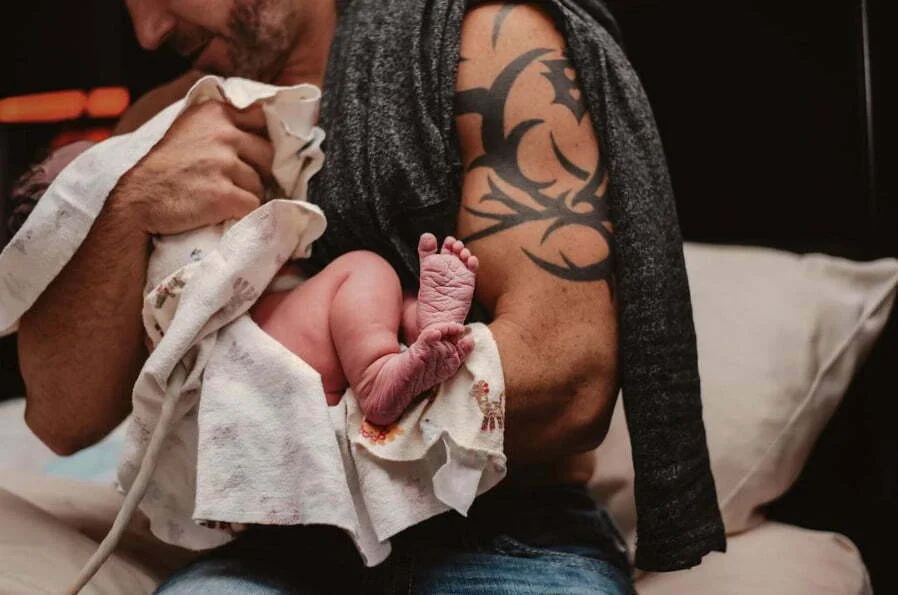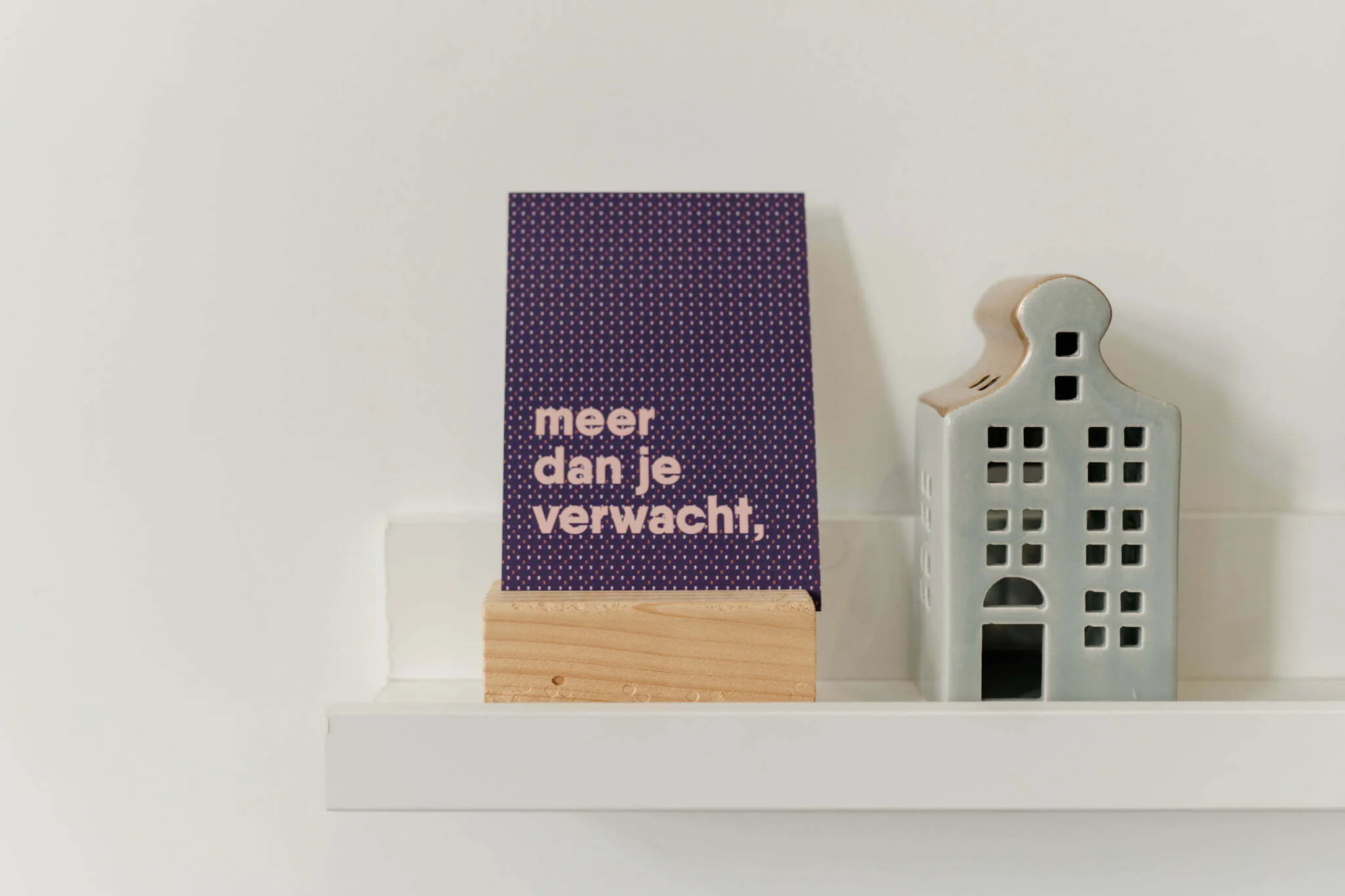Visitors, visitors, a house full...
Probably better not, actually.
Leaking breasts, sleep deprivation, and other discomforts are already challenging enough when you're alone with your partner and the maternity nurse. The time and energy you have left should be best spent on yourselves and your partner. Only allow visitors who make their own coffee or tea, who you can cry with when your hormones are raging, or who provide some form of support (like bringing food, babysitting older siblings, doing groceries). In a few weeks, when the baby is still small, you'll also enjoy showing him or her to the world.
Hormones during the postpartum week: not always a rosy experience
In the first week after giving birth, hormones are surging through your body. This causes physical effects like sweating a lot, frequent urination, and starting breastfeeding. Mentally, it can make you quite vulnerable. Almost all women experience postpartum tears, with a real "crying day" typically occurring 4 to 5 days after delivery. This is very normal and will naturally pass.
Do you still feel vulnerable after the postpartum period, do you not look back fondly on the birth, or is there otherwise no "rosy cloud" nearby to occasionally leap onto? Seek support from your surroundings, or reach out to a psychologist or visit the mama-fit spreekuur at our practice
Maternity care and midwife
Maternity care
The maternity nurse cares for you and your baby during the first 8 days after childbirth. She conducts physical checks on both you and the baby, guides you with breastfeeding, and teaches you and your partner a lot about baby care. Depending on the number of hours of maternity care you've requested, she also performs light household tasks.
Midwife
- Your midwife also visits you at home after your delivery, usually 2 or 3 times, more often if needed. During these home visits, we check on how you, your partner, and your newborn baby are doing. We also provide support with breastfeeding and any discomforts that may have arisen during or after your delivery.
- The postpartum period is intense and emotional for many. It involves numerous, often beautiful, changes, and sleep deprivation is common for new parents. Many women do not automatically find themselves on a "rosy cloud" after childbirth. As midwives, we are here to provide psychological and emotional support during this time!
- During the first 10 days after your delivery, we are still available 24 hours a day on our mobile number to assist you in case of concerns or emergencies.
Breastfeeding
Latch
If you are breastfeeding, it's always good to keep the following tips in mind:
- Make sure you are sitting or lying down comfortably
- Position your baby with their stomach facing your stomach
- Shape your breast slightly to make latching easier if you find it helpful
- Encourage your baby to take a big mouthful. You can do this by gently stroking your nipple over their upper lip.
- Bring the baby closer to your breast so that they can latch on.
- A child is properly at the breast when the lips are curled outward, not only your nipple but also your areola is in his/her mouth and the baby is close to your breast
- close to your breast
- Drink a large glass of water with each feeding to maintain your own hydration.
- Try to focus on your baby and yourself, and not to be distracted by other things like to-do lists.
Feeding schedule
Oftentimes, a baby begins by suckling rapidly to stimulate the let-down reflex. Afterward, the baby drinks with longer, deeper sucks, pausing every few swallows to swallow the milk. You often hear this swallowing, which is the best sign that your baby is breastfeeding!
Not happening naturally?
With some help from maternity care and midwives, breastfeeding usually gets off to a good start. When breastfeeding doesn't go smoothly, assistance from a lactation consultant can be nice. For questions or more detailed information, you can also consult the growth guide on breastfeeding.
Vitamin K and D
If you are breastfeeding, your child needs extra vitamin K and D every day. Give 150 micrograms of vitamin K daily for blood clotting until the baby is 3 months old. Additionally, until your child starts primary school, it's advised to give 10 micrograms of vitamin D daily (this applies to formula-fed babies as well).
Filing a report
Within 3 days after the birth, you must report the birth to the municipality. Bring the acknowledgment of paternity (if not married) and identification for both the father and mother. Remember that parental authority can only be requested by the partner (if not married) after the birth registration. This can be done online using your DigiD.
Heel prick test
Between the 4th and 7th day after childbirth, someone from the GGD Amsterdam will visit your home for the hearing test and heel prick test. The GGD is automatically notified after you register your child's birth, so it's important to do so promptly. The GGD visit does not require an appointment.
The RIVM has written a clear leaflet about the heel prick test and the hearing test.
What do we check?
The blood collected during the heel prick test is examined for 19 rare but treatable diseases. Early detection of these conditions allows for much better treatment options and a brighter future for your child.
During the heel prick test, screening also checks if the baby is a carrier of sickle cell disease. If a child is only a carrier, this usually does not cause symptoms, so some parents may prefer not to know. Please inform the nurse if this applies to you.










